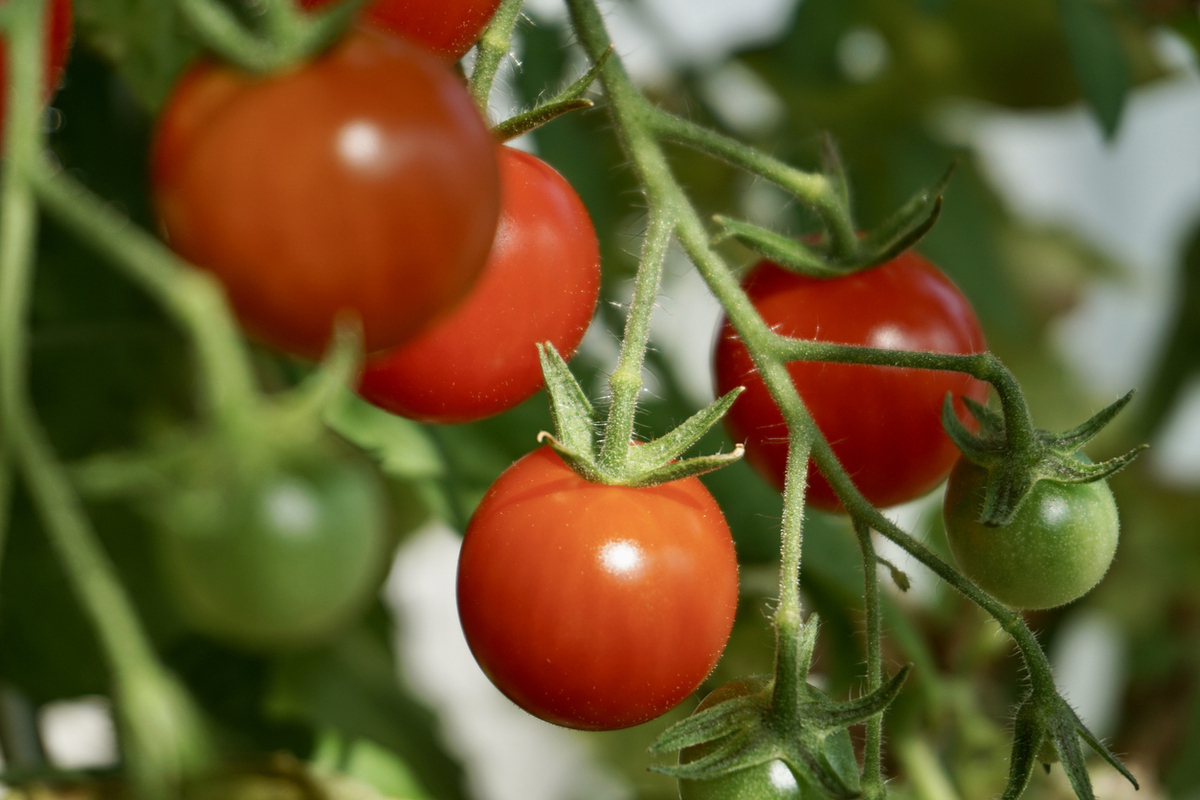
CRISPR Enhances Resistance of Tomato Against Bacterial Wilt Disease
December 11, 2024| |
A study published in the Plant Biotechnology Journal shows that reduced content of gamma-aminobutyric acid (GABA) enhances resistance to bacterial wilt disease in tomatoes. This approach reveals a new strategy to enhance plant resistance to Ralstonia solanacearum.
The Ralstonia solanacearum species complex is responsible for destructive diseases in a wide range of crops, leading to significant agricultural and economic losses. Among the major crops affected by Ralstonia are tomatoes. In this study, the researchers used CRISPR-Cas9 mediated gene editing to mutate SlGAD2, a gene that encodes the major glutamate decarboxylase responsible for GABA production in tomatoes.
The study found that SlGAD2 mutant tomato plants, with reduced GABA levels, demonstrated increased resistance to bacterial wilt caused by Ralstonia. These mutant plants also showed no significant changes in their response to other biotic and abiotic stresses, such as drought and heat. The researchers said that this approach, in combination with other strategies, could be efficient in offering a sustainable solution to Ralstonia.
For more information, read the article from Plant Biotechnology Journal.
| |
You might also like:
- UK-Based Start-Up Phytoform's Gene-Edited Tomato Produces Up to 400% More Fruit in Vertical Farms
- High GABA Tomato Determined as Non-GM in the Philippines
- Japan Starts Sale of Genome-Edited High-GABA Tomato
Biotech Updates is a weekly newsletter of ISAAA, a not-for-profit organization. It is distributed for free to over 22,000 subscribers worldwide to inform them about the key developments in biosciences, especially in biotechnology. Your support will help us in our mission to feed the world with knowledge. You can help by donating as little as $10.
-
See more articles:
-
Plant
- DA BPO Names the Awardees of the 9th Filipino Faces of Biotechnology
- US Court Overturns USDA Ruling on Genetically Engineered Plants
- Kenya’s National Biosafety Authority Opens Public Comments on the Proposed Environmental and Market Release of Bt Maize
- Experts Develop Heatwave-tolerant Potatoes
-
Animal
- ISAAA Webinar Explores the Science and Application of Gene Drives
-
Food
- Japan Remains a Key GM Product Import Market
-
Environment
- Research Reveals Warming Nighttime Temperatures Reduce Rice Quality in East Asia
- "Booster" Gene Game-Changer for Plant-Based Jet Fuel and Food Production
-
Read the latest: - Biotech Updates (December 17, 2025)
- Gene Editing Supplement (December 17, 2025)
- Gene Drive Supplement (February 22, 2023)
-
Subscribe to BU: - Share
- Tweet

